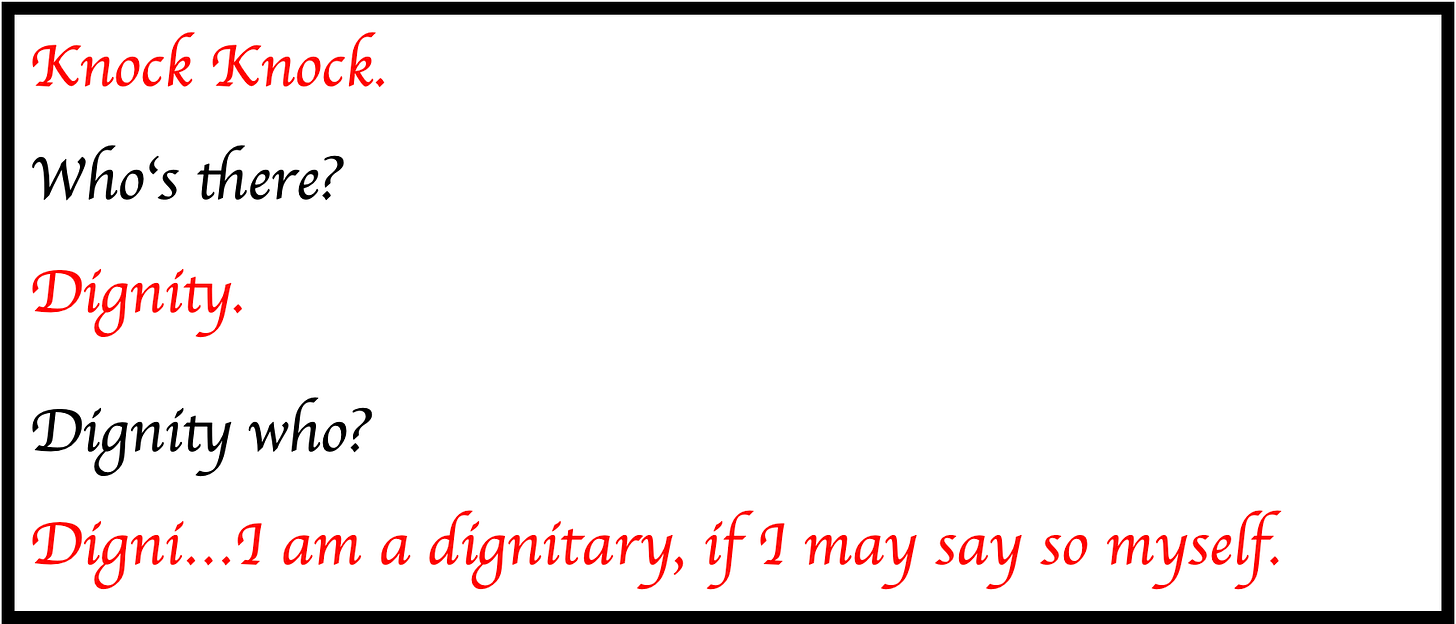Corny and made with Microsoft Word, because dignity doesn’t always need Canva(sometimes).
Dear Reader,
Do you find yourself carrying your bag higher, so others can see the brand name stitched to the bag’s bottom?
Do you cough the name of your job or the school you went to, to impress others – even when they might not care?
How do you define your dignity?
What do you attach your self-worth as a human being to?
The Mirror: Decide your Dignity
I’m guilty, guilty of attaching my dignity to things I shouldn’t: name, looks, possessions, grades and certificates, friendships, praise and applause, being called “different”, career and earning potential, personality vis-à-vis how I compared to others, etc.
“Do you know who I am?” is a phrase I’m sure most Nigerians have heard or witnessed, at schools, banks, jobs, basically everywhere. We might look down on others who act like that, despite having the instincts to say the same dumb six words – sometimes.
The truth is whatever we think we are has an expiry date.
What happens when the name turns into muck? When the name spurs disgust from others? How many public figures have succumbed to this? People once respected and feared, only to shrivel into nothing when their secrets or weaknesses are exposed.
Growing old cannot be defeated, despite the millions poured into an industry desperate to create the ruse of immortality – or something close.
We should be proud of our achievements, but turning them into our identity, into why we deserve respect is one of the fastest routes to low self-esteem and eventual depression. Getting into a school with a low acceptance rate is spectacular, but what happens when two decades pass, and all we have to show for it are certificates we can’t trade for food, safety or shelter?
Glories fade; they don’t follow us to our graves.
Friendships, and the general concept of ‘your network is your net worth,’ reeks. People can sniff your insincerity if you tie your worth to the ability to be seen with them. Dangling names of your contact list for a self-esteem boost should make you sad. If you gave yourself a chance to be true to the person you are, and the person you want to grow into, you might be pleasantly surprised. People might like you for all the things you believe make you unworthy.
Praise and applause, few words that sway around us, disappear faster than fog. So, we become addicted, clutching and grasping for opportunities to bring those words back.
Who taught us to hate ourselves? To feel good when others call us different from their understanding of who they expected us to be, based on our tribe, religion, etc? To hide our accents because we’ll be called, “local.”
What happens when the plans you had for your career pan out differently? When the goals you had of material accumulation fall through? Is that it? You’re over? You’re nothing?
How do we define dignity in a way that teaches us self-compassion?
The Echo: Culture Drop
It’s the 100th year anniversary of one of my favourite novels, The Great Gatsby - a novel that depicts the dangers of tying dignity to:
Wealth
Power
Connections
Love
Fake names
Read the novel, or watch the movie, to learn the consequences of one man’s desperate attempts to become dignified through corrupt wealth, lies, delusions, infatuation, appearance, etc.
My main takeaway from The Great Gatsby: Dignity for the sake of appearances is a facade, and others can see through it. Gatsby had everything, and yet nothing worth holding onto.
The Grounding: Reflection Exercise
Write down the first ten things you tie your dignity to without pause.
Look at the list and ponder: “What would I do if I wake up one day without any of them?”
Before You Go
Unlearning the false definition of dignity takes time; it’s difficult because the world tries its best to force its own definitions on us, based on insecurities and warped beliefs.
I struggle with it, and I’m sure I’m not the only one out there. The choice to carve our path is ours though, a freedom no one can take from us.
Until next week,
Spring4th.




